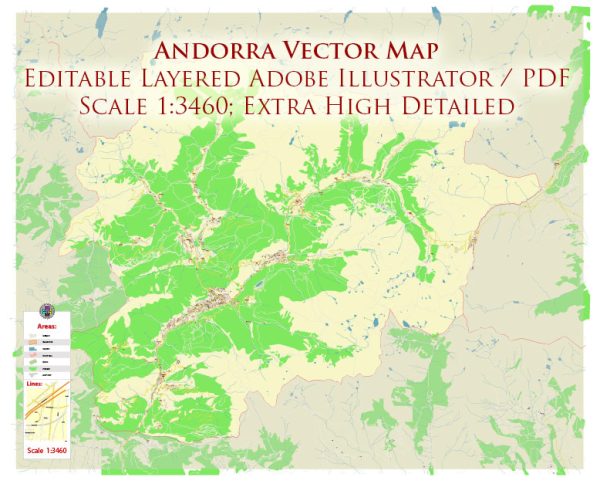Andorra is a small, landlocked country located in the eastern Pyrenees mountains of Europe, bordered by France to the north and Spain to the south. Its history is characterized by its unique position as a co-principality, with two co-princes who are the heads of state: the President of France and the Bishop of Urgell, a Catholic bishop in Catalonia, Spain.
Here is a brief overview of Andorra’s history:
- Ancient History: Andorra has a long history, with evidence of human habitation dating back to the Neolithic period. It was originally settled by various tribes, including the Andosins, from whom the country gets its name. Over the centuries, Andorra was subject to the influence and control of various neighboring powers, including the Roman Empire and the Visigoths.
- Feudal Period: In the early Middle Ages, Andorra became a part of the Marca Hispanica, a buffer zone created by the Carolingian Empire to defend against Muslim invasions. It was ruled by various feudal lords, and in 988, Charlemagne’s descendant, Count of Urgell, and the Bishop of Urgell, are believed to have given the Andorran people certain rights and privileges in a charter.
- Co-Principality: Andorra’s unique status as a co-principality emerged in the 13th century when a feudal agreement known as the Paréage was signed between the Count of Foix (representing the French co-prince) and the Bishop of Urgell (representing the Spanish co-prince). This agreement established the shared sovereignty of Andorra by the two co-princes. The Andorran people retained a certain level of autonomy under the Paréage, and this arrangement has continued to the present day.
- Modern Era: Andorra’s history remained relatively stable over the centuries, with the co-princes nominally governing the country. In the 20th century, Andorra went through a process of modernization, adopting a democratic constitution in 1993, which granted the country more autonomy and self-governance.
- Contemporary Andorra: Today, Andorra is a parliamentary democracy with a mixed economy based on tourism, finance, and trade. The country has a unique cultural blend of Catalan, Spanish, and French influences, and it is known for its picturesque landscapes, outdoor recreational activities, and tax advantages, which have made it a popular destination for tourists and businesses alike.
Andorra’s history is marked by its enduring co-principality status, its ability to preserve its cultural heritage while adapting to the modern world, and its unique position in the heart of the Pyrenees Mountains.


 Author: Kirill Shrayber, Ph.D. FRGS
Author: Kirill Shrayber, Ph.D. FRGS